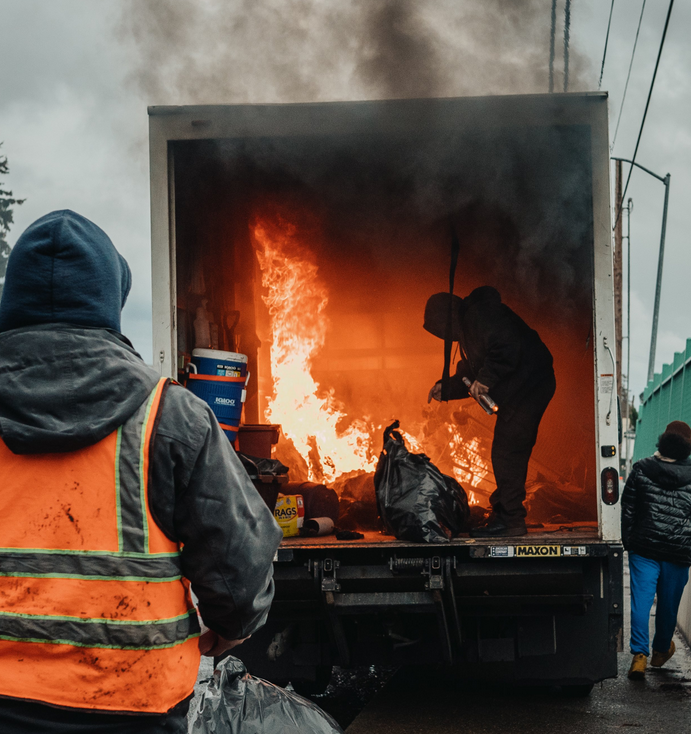We take responsibility for the placement of a low powered
incendiary device in the early hours of 03/12
at the ΕΦΚΑ office in Kypseli, located on Kefallinias
Street.
Although the device, fortunately for you, did
not ignite, the message remains the same.
Rest assured that with the same operational ease, we can
target any location of our choosing at any time, with a
similar device.
The reason we selected this specific target, among the
many offered by the metropolis, is that it is a key
structure of the state mechanism, one that promotes
destitution, subjugation, and consequently, the
manipulation of the majority of society. The Social
Insurance Agency (ΕΦΚΑ) operates under the
supervision of the Ministry of Labour, which in capitalist
terms means it acts as an executive organ of the
ideological orientation promoted by the current
government.

 Links to download PDFs:
Links to download PDFs:





 harassment in Bure and surroundings, we decided to sneak out for a little night getaway along the old railway line under the starry sky.
harassment in Bure and surroundings, we decided to sneak out for a little night getaway along the old railway line under the starry sky.


